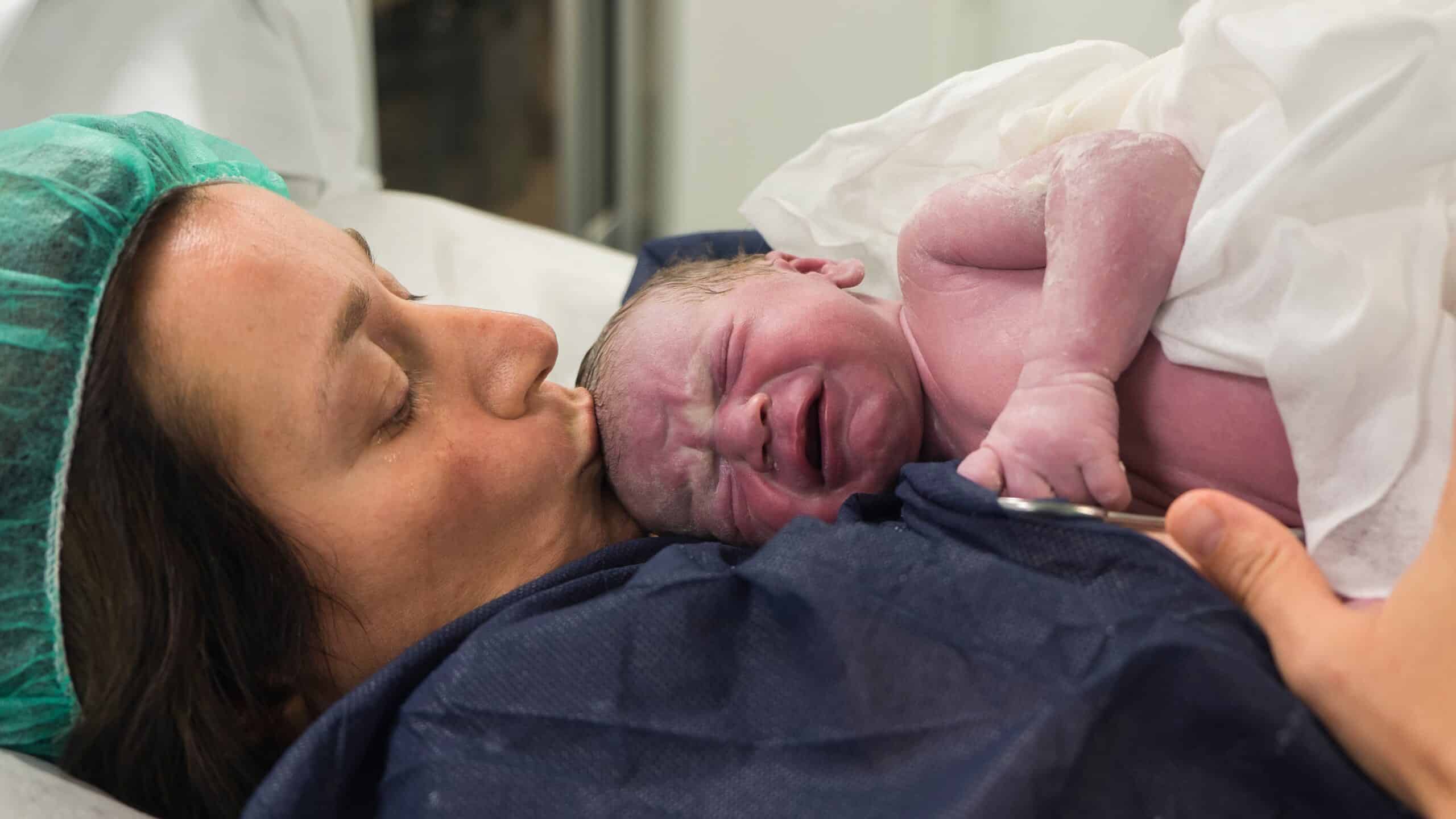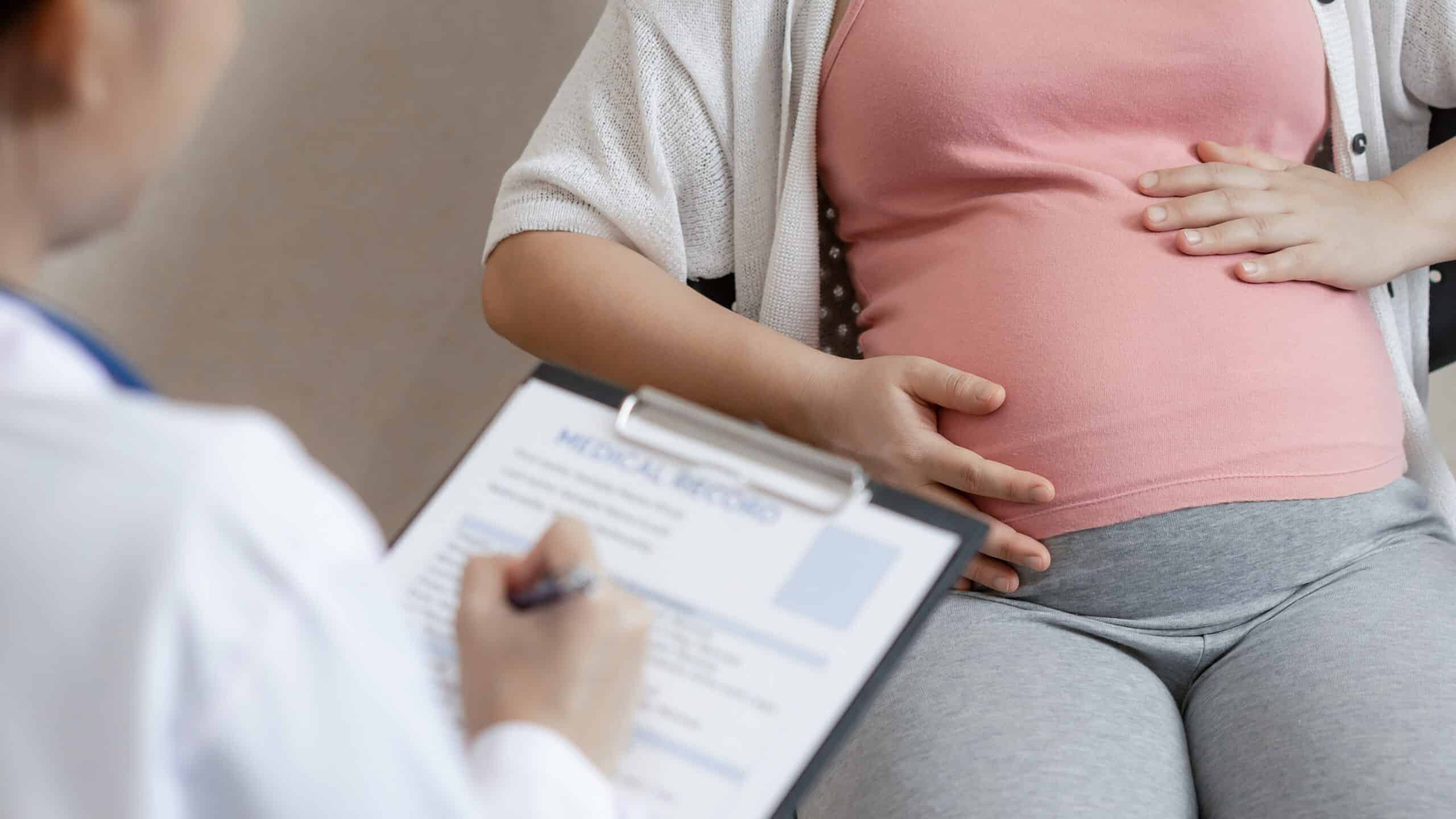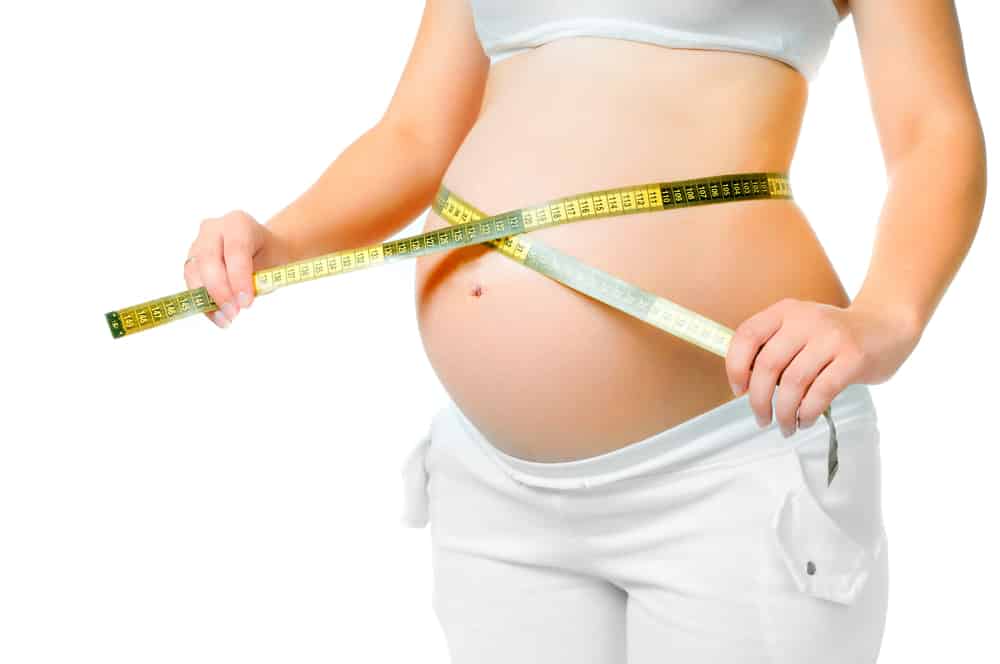More and more women are choosing to wait until later in life to start a family. This choice has many advantages, including financial security and more life experience. No matter the reasons for this choice, pregnancy in your 40s can be quite different from pregnancy in your 20s or even 30s. Here is what to expect from a pregnancy in your 40s, otherwise known as a “geriatric pregnancy.”
What is a Geriatric Pregnancy?

©iStock.com/Blue Planet Studio
If you have been alive for a while, you might have heard the term geriatric pregnancy. A geriatric pregnancy refers to a woman who is pregnant after the age of 35. However, recently, this term has been dismissed as outdated. Instead, in the medical community, a woman who is pregnant later in life is referred to as being at an advanced maternal age or AMA.
Although women over 35 who conceive aren’t necessarily “elderly” like geriatric makes them sound, there is a reason for this title. It simply means that there is an increase in pregnancy-related health risks if a woman conceives later in life.
There is a Fertility Decline After 35

©bezikus/Shutterstock.com
One reason for this increase in risk is the fertility decline after the age of 35. Women are born with every egg cell they will ever have. As a woman grows older, her eggs grow older with her as well. This means that egg quality decreases as a woman ages.
Sometimes, these “older” eggs may have chromosomal variations. This is one reason doctors recommend additional genetic testing in the first trimester. While they do this with all pregnancies, it’s strongly recommended in a pregnancy where the woman is at an advanced maternal age.
You Will Receive More Monitoring

©S_L/Shutterstock.com
Since a woman with an advanced maternal age has risks of her eggs having chromosomal variations and also an increase in medical conditions, she will receive more monitoring. Her doctor will most likely want to see her more often.
Additionally, during the pregnancy, there may be more ultrasounds, blood tests, and overall monitoring to ensure the pregnancy progresses at a healthy rate.
Higher Risk of Pregnancy-Related Conditions

©DiMedia/Shutterstock.com
A woman who has a pregnancy over the age of 40 will have an increased risk of pregnancy-related conditions. The extra monitoring is to watch for anything out of the ordinary. Some of these pregnancy-related conditions include:
- The baby has a lower-than-average birth weight.
- Higher risk of ectopic pregnancy.
- There is a higher risk of miscarriage.
- Babies may have a higher risk of being born with congenital disabilities.
- A pregnant woman over 40 has an increased risk of developing gestational diabetes.
- There is a higher risk of high blood pressure the older we get (even when we are not pregnant.)
- High blood pressure also increases the risk of pre-eclampsia.
- There is also a higher risk of a stillbirth.
Your Energy Levels May be Different

©Ground Picture/Shutterstock.com
Apart from more frequent testing and a higher risk of pregnancy-related conditions, there are other differences when a woman is pregnant in her 40s versus her 20s and 30s. You may find your energy levels are not the same as in your 20s.
This energy change can be attributed to a number of things, such as a full-time career, medical conditions, older children to attend to, or even just age.
If you are pregnant in your 40s, you may notice that pregnancy-related fatigue hits you harder and faster.
May Have More Aches and Pains

©Nutlegal Photographer/Shutterstock.com
Since our bodies wear down the older we get, it’s normal for a pregnant woman in her 40s to feel achier. These aches and pains are typical for any pregnant person; however, the older a woman is, the more she will feel.
You may find your back or legs hurt more often. Additionally, hormones may give you more frequent headaches. Although these aches and pains are typically normal, never be afraid to consult your doctor if something seems concerning.
Higher Chance of Need of C-Section

©davidsunyol/Shutterstock.com
Advanced maternal age also increases the risk of needing a cesarean section (C-section.) This is because pregnancy complications may appear more often when a woman is older than 40.
May Increase the Chances of Having a Multiples Birth

©iStock.com/undefined undefined
There are a few reasons why the chance of having a multiples birth increases when a woman is over 40. First, hormonal changes may cause a woman’s body to release more than one egg during ovulation.
Additionally, more women choose to use fertility treatments, such as IVF, as they age. Doing so is also associated with an increased chance of multiple births.
There are Benefits as Well

©Ground Picture/Shutterstock.com
Although having a pregnancy at an advanced maternal age comes with risks, there are also heaps of benefits as well. Many people say that the benefits outweigh the risks.
These benefits are why many women and couples choose to wait until much later to start families.
More Life Experience

©PeopleImages.com - Yuri A/Shutterstock.com
One benefit of waiting until later in life to have a baby is that you have more life experience. Many women choose to start careers, travel, and gather plenty of life experience before settling down and having a family.
Starting a family is a personal choice; however, many women are choosing this path because it comes with a number of benefits. Life experience is great when raising a child because she can give her child wisdom and advice that she learned along the way. Additionally, having life experiences while young helps you mature and enjoy life in a way many don’t when raising a family.
Financial Stability

©iStock.com/OlyaSolodenko
Another reason that life experience is a good thing before starting a family is that it often comes with financial stability. Raising a family is not easy, and financial strain makes it even harder. The more financially stable someone is before having a baby, the more secure they and their partner (if they have one) will feel.
Financial stability helps reduce some of the stresses of having a baby. While no one can reduce all the stress from having a family, having security makes it easier.
Expect More Tests While Pregnant After 40

©Svitlana Hulko/Shutterstock.com
If you decide to have a pregnancy after age 40, there are a few things to expect. First, your doctor will most likely suggest genetic screening. Typically, the first round of genetic screening is a noninvasive test that is recommended to everyone. While it is optional, it can be beneficial to a woman who is over 40.
If a woman chooses to have a noninvasive genetic screening and needs more, then she may need to undergo a round of more invasive screening.
Additionally, there may be reasons to see a maternal-fetal medicine specialist. Typically, a woman will see one if they have a higher-risk pregnancy. Since being at an advanced maternal age does put a woman at a higher risk during pregnancy, it can be a good idea to see one.
Furthermore, women will have more prenatal doctor visits, and testing may be done sooner during pregnancy.
How to Lower Risk of Pregnancy Complications in Your 40s

©Blue Planet Studio/Shutterstock.com
If you are at an advanced maternal age, you are probably wondering if there is anything you can do to reduce your risk of complications. The answer is yes. While you cannot prevent every complication, several steps can be taken to reduce risk and increase the chances of keeping your pregnancy healthy.
Consistently take Prenatal Vitamins

Be sure to take your prenatal vitamins regularly. These vitamins give you and the baby important nutrients and vitamins that you may be missing. They will help fill in any gaps in your diet.
Stop Drinking Any Alcohol

©iStock.com/tamara_kulikova
If you drink alcohol, refrain from drinking any during your pregnancy. Drinking alcohol while pregnant can come with a whole host of complications. These can include Fetal alcohol spectrum disorders, stillbirth, low birth weight, and even an increase in SIDS.
Start or Continue Eating a Healthy Diet

©Dmitry Melnikov/Shutterstock.com
Eating a healthy diet is good for any pregnancy. Be sure to eat a variety of nutrient-rich foods, such as fruits, vegetables, and healthy grains. A healthy diet and prenatal vitamins can help give your baby and you the essential nutrients that are important as they develop.
Manage Weight Gain

©In Green/Shutterstock.com
Weight gain while pregnant can be a touchy subject. Every woman gains differently. However, maintaining a healthy weight gain while pregnant can help reduce the risks of high blood pressure and gestational diabetes. Both of these conditions may put a woman and pregnancy at a higher risk of complications.
One way to manage weight gain is to be sure to exercise regularly. This can be something as simple as going for an evening walk for 20 minutes every day.
Manage Any Medical Conditions That May be Pre-Existing

©Ground Picture/Shutterstock.com
Pre-existing medical conditions can put a woman at higher risks while pregnant. If you have a condition like high blood pressure, a mental health disorder, or diabetes, it’s important to continue managing these conditions while pregnant. Unmanaged medical conditions can complicate a pregnancy quickly.
Keep Your Prenatal Visits

©ABO PHOTOGRAPHY/Shutterstock.com
Prenatal visits can be tempting to skip, especially if you are busy. However, it’s important to go to every prenatal visit your doctor makes. These appointments make it easier for your doctor to monitor your progress. Doctors will also be able to notice signs of something being out of the ordinary.
If you don’t show up to your appointments, your doctor cannot detect any signs or symptoms of something going amiss.
Reduce Your Stress Level

©Josep Suria/Shutterstock.com
Stress does a number on our health. It can increase blood pressure, make it difficult to sleep, and more. It’s important to try to reduce your stress level while pregnant. Say no to unnecessary commitments.
Get plenty of sleep and take care of yourself. It’s easy to neglect your self-care and mental health while you are pregnant and when you have other commitments. However, taking care of yourself is one of the most important forms of love you can show your children and future baby.
In Summary

©iStock.com/monkeybusinessimages
Having a geriatric pregnancy, or being at an advanced maternal age, can be scary. After all, it comes with a number of pregnancy-related risks. Yes, you will be more closely monitored while you are pregnant. Yet so many benefits come with waiting until later in life to have a baby.
If you are over 40 and pregnant, don’t be discouraged. Maybe this pregnancy is a surprise and not what you expected, or you have waited to start a family. Regardless of your reasons, it is possible to have a healthy pregnancy that leads to a healthy baby.
Be sure to visit your OBGYN as much as they schedule, don’t be afraid to ask questions, and take care of yourself. These steps can help you enjoy your pregnancy, even in your 40s.
The image featured at the top of this post is ©shisu_ka/Shutterstock.com.
